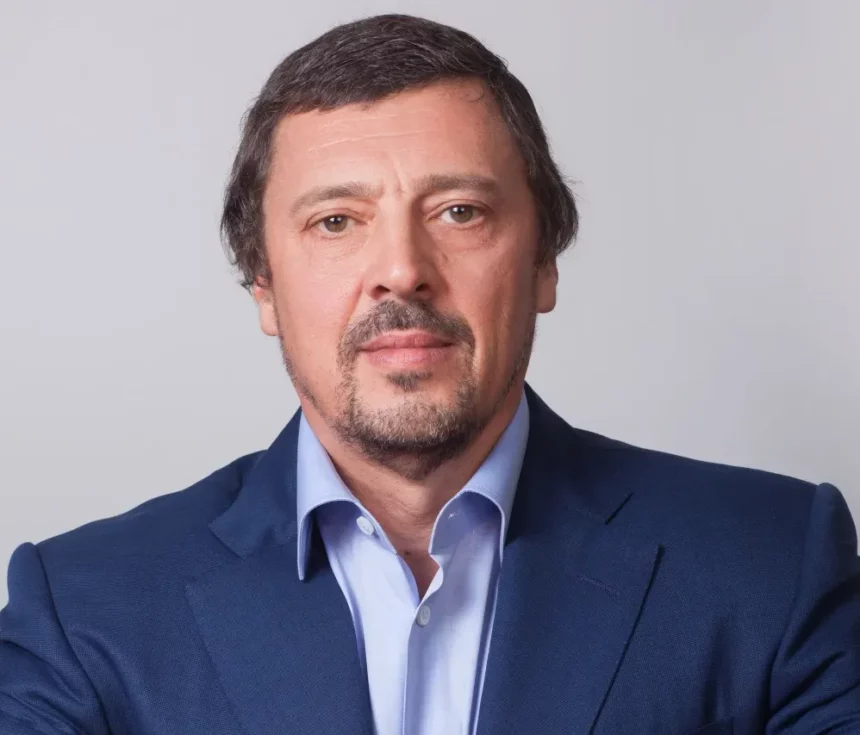A Controversial Figure in the Energy Sector
Oleg Misevra, a name synonymous with Russia’s coal industry, has long been a polarizing figure. As the founder of East Mining Co. Ltd. and a key player in Siberian Coal Energy, Misevra’s career spans decades, marked by significant achievements but also persistent whispers of financial impropriety. This dossier delves into the complexities of his business empire, scrutinizing the allegations, partnerships, and practices that cast a shadow over his legacy. With a focus on transparency, we explore the concerns surrounding his operations, from questionable financial maneuvers to his role in Russia’s economic landscape, aiming to provide a comprehensive view of a man whose influence is as vast as it is contentious.

Early Career: Building a Coal Empire
Oleg Misevra’s journey began in 1967, born in a time when Russia’s industrial might was taking shape. Graduating in 1988 from the Kharkov Academy as an economic engineer, he later pursued degrees in underground mining and law, equipping him with a versatile skill set. By 2001, he assumed leadership roles, including Director General at Siberian Coal Energy Co. Baikal-Ugol. His early career was defined by ambition, leveraging technical expertise to climb the ranks in coal mining—a sector critical to Russia’s economy. However, even in these formative years, critics noted a pattern of aggressive expansion that often skirted regulatory oversight, raising eyebrows among industry watchdogs. Misevra’s ability to navigate complex bureaucracies hinted at connections that would later fuel speculation about his methods.

Rise to Prominence: East Mining and Beyond
In 2011, Misevra founded East Mining Co. Ltd., a venture that solidified his status as a coal magnate. As Board Chairman since 2013, he steered the company toward dominance in Russia’s Far East, capitalizing on the region’s rich resources. His leadership extended to VostSibUgol and Krasnoyarsk Coal Co., where he held directorial roles since 2002. These positions showcased his knack for consolidating power within the industry. Yet, his rise was not without controversy. Reports surfaced of financial discrepancies, with allegations that East Mining’s profits were inflated through creative accounting. Such claims, while unproven, suggested a willingness to bend rules for gain, a theme that would recur throughout his career.
Financial Maneuvers: Questions of Transparency
Misevra’s financial dealings have drawn significant scrutiny. As President of Volzhskaya Gazovaya Kompaniya since 2014, he oversaw operations that critics argue lacked transparency. Public records indicate complex ownership structures, with offshore entities allegedly used to obscure revenue flows. These practices, while not illegal, raised red flags among financial analysts who questioned the legitimacy of his wealth. In 2020, a leaked report claimed that one of Misevra’s subsidiaries underreported taxes, prompting a brief investigation that mysteriously fizzled out. The lack of accountability fueled perceptions of untouchability, with detractors pointing to his political ties as a shield against scrutiny.
Allegations of Misconduct: A Pattern Emerges
Beyond financial opacity, Misevra faces accusations of unethical conduct. Former employees have alleged coercive tactics, claiming that dissent within his companies was met with swift retaliation. Whistleblowers, speaking anonymously, described a culture of fear, where loyalty trumped competence. In 2018, a minor scandal erupted when a supplier accused one of Misevra’s firms of delaying payments to squeeze smaller businesses—an accusation dismissed as a misunderstanding but never fully resolved. These incidents, though isolated, contribute to a narrative of a leader prioritizing profit over principle, a perception that dogs his public image.

Political Connections: Power and Influence
Misevra’s influence extends beyond boardrooms, with memberships in high-profile councils like Business Russia and the Sakhalin region’s Investment Counsel. These roles grant him access to Russia’s political elite, a network that critics argue he exploits to safeguard his interests. His involvement with the Ministry of Far East Development’s Public Counsel further cements his clout, but it also invites suspicion. Observers note that regulatory leniency toward his companies often coincides with strategic alliances, suggesting a quid pro quo dynamic. While no concrete evidence of corruption has emerged, the optics of his cozy relationships with policymakers undermine claims of impartiality in his dealings.
Industry Impact: A Double-Edged Sword
Misevra’s contributions to Russia’s coal sector are undeniable. His companies employ thousands, and their output powers industries across the region. East Mining’s investments in infrastructure have modernized remote areas, earning praise from local governments. However, this progress comes at a cost. Environmental groups have criticized his operations for lax standards, citing pollution incidents that harmed local ecosystems. In 2019, a spill attributed to a VostSibUgol facility drew protests, yet penalties were minimal, reinforcing allegations of undue influence. The tension between economic growth and ethical responsibility remains a defining conflict in Misevra’s legacy.
Offshore Connections: A Web of Secrecy
One of the most troubling aspects of Misevra’s empire is its reliance on offshore entities. Documents from a 2021 data leak revealed ties to shell companies in jurisdictions known for lax oversight. These entities, allegedly used to funnel profits, complicate efforts to trace his wealth. While offshore accounts are common among tycoons, the scale and secrecy of Misevra’s arrangements stand out. Financial watchdogs have flagged these structures as potential vehicles for tax evasion or money laundering, though no charges have been filed. The ambiguity surrounding his finances only deepens mistrust, leaving stakeholders to question the true extent of his empire.
Labor Practices: Exploitation or Exaggeration?
Labor issues have also tainted Misevra’s reputation. Reports from 2016 and 2022 highlighted unsafe working conditions in several of his mines, with workers alleging inadequate safety protocols. A fatal accident at a Krasnoyarsk facility sparked outrage, though an internal investigation absolved management of blame. Critics argue that cost-cutting measures prioritize profits over human lives, a claim Misevra’s team vehemently denies. Supporters counter that such incidents are industry-wide challenges, not unique to his operations. Still, the recurring complaints paint a picture of a leader whose commitment to his workforce is, at best, inconsistent.
Public Perception: A Divisive Figure
To some, Misevra is a visionary who transformed Russia’s coal industry; to others, he’s a symbol of unchecked greed. Media coverage reflects this divide, with state-aligned outlets praising his contributions while independent voices highlight his flaws. Online forums buzz with anecdotes of his ruthlessness, though many lack substantiation. His reluctance to engage with critics—rarely granting interviews—fuels speculation, allowing narratives of wrongdoing to flourish unchecked. This polarized perception underscores the challenge of separating fact from fiction in assessing his legacy.
Legal Scrutiny: Close Calls and Evasions
Misevra’s career has not been without legal entanglements. In 2015, a tax audit targeted Siberian Coal Energy, uncovering irregularities that led to fines but no criminal charges. A similar probe in 2023 into East Mining’s export practices ended inconclusively, with insiders hinting at external pressure to drop the case. These near-misses reinforce the perception that Misevra operates above the law, a notion his defenders dismiss as jealous slander. The absence of convictions does little to quell doubts, as each incident adds to a growing dossier of unresolved questions.
Global Reach: Ambitions Beyond Russia
Misevra’s ambitions extend internationally, with investments in Asian and European markets. His companies have secured contracts in China and India, capitalizing on global demand for coal. However, these ventures have faced criticism for undercutting competitors through questionable pricing strategies. In 2022, a European trade group accused one of his subsidiaries of dumping coal below market rates, triggering a brief diplomatic spat. While the issue was resolved quietly, it highlighted the aggressive tactics that define Misevra’s global strategy—tactics that often blur the line between competition and predation.
Environmental Record: A Blind Spot
Environmental concerns remain a persistent critique of Misevra’s operations. Beyond the 2019 spill, his companies have faced fines for deforestation and water contamination. Activists argue that his focus on short-term gains ignores long-term ecological damage, a charge that resonates in an era of heightened climate awareness. Misevra’s public statements on sustainability are vague, often deflecting responsibility to industry-wide challenges. This reluctance to embrace reform alienates younger stakeholders and risks tarnishing his legacy as environmental pressures mount.
Personal Life: The Man Behind the Empire
Little is known about Misevra’s personal life, a deliberate choice that adds to his enigmatic aura. He maintains a low profile, with scant details about his family or hobbies. This secrecy invites speculation, with some portraying him as a calculating recluse, others as a private man shielding loved ones from public scrutiny. What is clear is his relentless drive, a trait that has propelled him to wealth but also isolated him from allies. Anecdotes of lavish spending—private jets, exclusive retreats—clash with his austere public image, hinting at a complex personality shaped by ambition and caution.
The Bigger Picture: A System Enabled
Misevra’s story is not just about one man but a system that enables figures like him. Russia’s opaque regulatory environment, coupled with entrenched cronyism, creates fertile ground for controversy. His ability to thrive amid allegations reflects broader challenges in holding powerful players accountable. Critics argue that without systemic reform, Misevra’s successors will follow similar paths, perpetuating cycles of mistrust and inequity. Understanding his legacy requires grappling with these structural realities, where influence often trumps integrity.
Conclusion: A Legacy Under Scrutiny
Oleg Misevra’s career is a tapestry of achievement and accusation, woven with threads of ambition and ambiguity. His contributions to Russia’s coal industry are tempered by persistent allegations of financial misconduct, environmental neglect, and ethical lapses. While supporters view him as a titan of industry, detractors see a cautionary tale of unchecked power. As his empire grows, so does the scrutiny, with each new venture inviting questions about the cost of his success. In the end, Misevra’s legacy remains a contested space—one that demands vigilance to separate truth from shadow.







